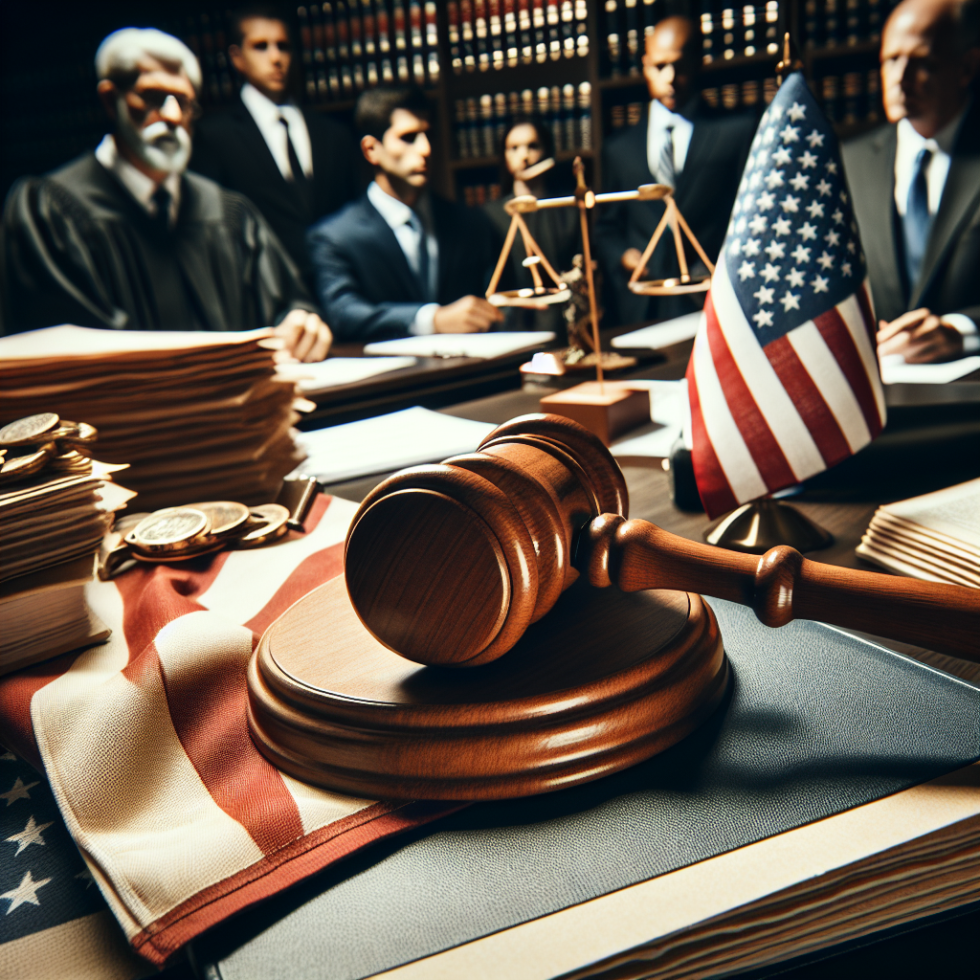
Unpacking the Appeal Court’s Decision
An appeals court in New York has recently overturned a significant civil fraud penalty that Donald Trump was ordered to pay, amounting to $500 million. This ruling stems from a case in which Trump, alongside his company, was found liable for dramatically inflating property values to secure advantageous loans. The original penalty imposed by Judge Arthur Engoron reflected a $355 million judgement, which increased to over half a billion dollars with accumulated interest.
In the lengthy ruling released this week by the New York Supreme Court’s Appellate Division, the judges affirmed that while Trump was indeed liable for fraud, the penalty was excessive. Judge Peter Moulton remarked that while “harm certainly occurred,” it was not catastrophic enough to justify such a hefty financial punishment, raising questions about constitutional protections against disproportionate penalties.
Trump’s Reaction: A Victory in Disguise?
In a post on his Truth Social platform, Trump celebrated the court’s decision as a “total victory.” He posited that the court had shown courage in reversing what he termed an “unlawful and disgraceful decision”. Furthermore, he framed the ruling as part of a broader “political witch hunt” against him.
The Attorney General’s Response
Notably, the New York Attorney General’s Office, which initially brought the fraud case against Trump, has also positioned itself in favor of the ruling. They consider it a win, as it upheld Trump’s liability for fraud, even though the monetary penalty was dismissed. The AG’s office has expressed intentions to appeal the decision regarding the fine to New York’s highest court, asserting that the judges confirmed the validity of their findings: Trump and his associates engaged in fraud.
Unpacking the Ruling’s Nuances
The Appellate Court’s decision kept intact several non-financial penalties imposed by Judge Engoron, which includes a ban on Trump holding company director positions or securing loans from state banks for three years. The 323-page ruling, filled with various opinions from the five-judge panel, revealed a notable division in perspectives on the merits of the original lawsuit led by Attorney General Letitia James. While some judges affirmed her authority in pursuing the case, others called for a more limited trial or suggested outright dismissal.
What Lies Ahead: The Next Steps
Following this decision, Eric Trump, who was heavily involved in the case, took to social media to express his satisfaction, claiming justice had prevailed after years of legal strife. However, legal experts like Will Thomas from the University of Michigan interpret the ruling differently. They see it as a postponement of a substantive legal resolution, pointing out that the court’s comments about “ensuring finality” indicate an unwillingness to conclusively address the underlying legal questions. As Thomas stated, the outcome in James v Trump will likely continue to unfold in the higher courts.
The Broader Implications of the Ruling
This ruling underscores the complexities of handling high-profile legal cases involving former presidents. Mark Zauderer, a prominent appellate attorney, raised a critical point questioning whether such an intricate and lengthy decision would have been crafted had the case involved a lesser-known individual rather than Donald Trump.
A Background on the Original Case
In September 2023, Judge Engoron ruled against Trump, concluding that he had committed business fraud by grossly misrepresenting his financial standing, which had implications on tens of millions of dollars in loans. This included incidents where Trump claimed his Trump Tower penthouse was nearly three times larger than it actually is. Critics argue that the original lawsuit, spearheaded by a Democratic attorney general, reflects underlying political motivations amidst Trump’s continual claims of being the target of political bias.
The Way Forward: Expectations and Speculations
As this legal saga progresses toward New York’s Court of Appeals, legal pundits and the public alike will be closely monitoring the implications of each ruling. With the stakes being so high, the ultimate resolution may not only redefine penalties for corporate malfeasance but also the boundaries of legal accountability for public figures.
To learn about the disclaimer of liability for the content of this website, click here


